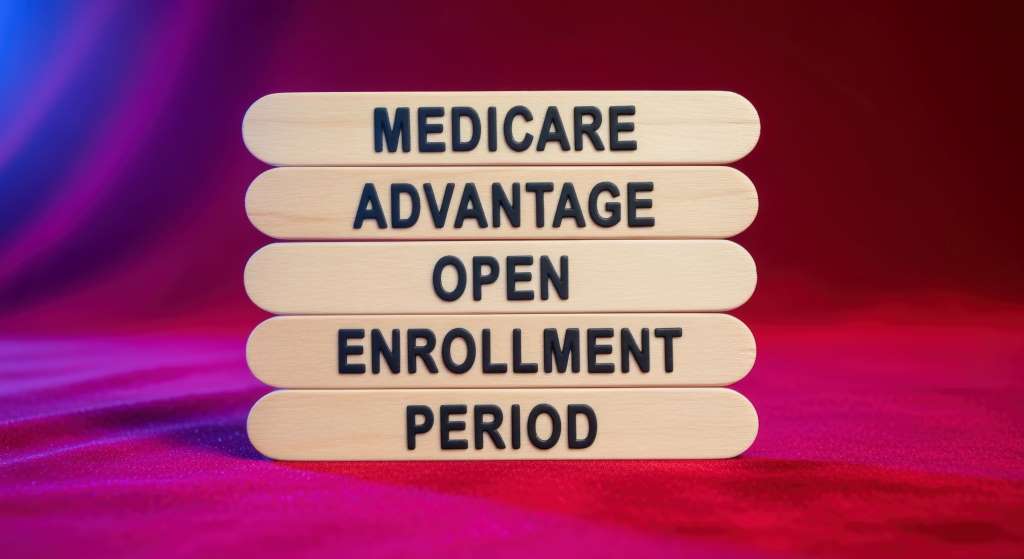It’s That Time of Year Again: Medicare Open Enrollment Begins Soon!
If you’re on Medicare, October is an important month to mark on your calendar. Medicare Open Enrollment runs from October 15 through December 7, giving current enrollees the opportunity to review their coverage, compare plans, and make changes for the year ahead.
Healthcare coverage can have a big impact on your retirement budget, and Open Enrollment is your chance to make sure your plan still meets your needs.
At EKS Associates, our advisors help clients make informed and confident decisions about Medicare as part of their broader financial plan. With new premiums, coverage rules, and plan updates every year, it’s worth taking a closer look before automatically renewing.
What is Medicare Open Enrollment?
The Medicare Open Enrollment Period (sometimes called the “Annual Election Period”) is when current Medicare beneficiaries can make changes to their existing coverage.
During this period, you can:
- Switch from Original Medicare (Parts A and B) to a Medicare Advantage plan (Part C)
- Switch from a Medicare Advantage plan back to Original Medicare
- Change your Part D prescription drug plan
- Add, drop, or adjust optional coverage
Changes made during Open Enrollment take effect on January 1, 2026.
Important: If you’re not yet enrolled in Medicare, Open Enrollment does not apply to you. Instead, you’ll have your Initial Enrollment Period—a seven-month window that begins three months before your 65th birthday.
We talk more about this window in next week’s article. However, if you need to speak with an advisor immediately, call our office or email us, and an advisor will get in touch with you.
What About Special Enrollment Periods?
In certain situations, you may qualify for a Special Enrollment Period (SEP). This is a time outside of the usual enrollment windows when you can make changes to your Medicare coverage without penalty. Common qualifying events include losing employer coverage, moving to a new service area, or changes to your current plan’s contract with Medicare. These periods are designed to ensure you don’t lose access to necessary coverage when life circumstances change.
You can learn more about Special Enrollment Periods here.
Who Should Pay Attention During Open Enrollment?
Open Enrollment is designed for individuals who are already enrolled in Medicare. But if you’re approaching age 65, this is still a great time to start preparing.
You should review your coverage each year if:
- Your health needs or prescriptions have changed
- You’ve moved to a new area (Medicare Parts C and D plans vary by ZIP code)
- Your current plan’s premiums, co-pays, or provider network are changing
- You simply want to confirm that your plan is still the best fit for your situation
Spending a little time now can help you avoid unexpected costs and coverage surprises later.
Understanding the Four Parts of Medicare
Here’s a simple breakdown of what each part covers:
Part A: Hospital Insurance. Medicare Part A covers inpatient hospital stays, skilled nursing, hospice care, and limited home health care. Part A is usually premium-free.
Part B: Medical Insurance. Medicare Part B covers doctor visits, outpatient care, lab tests, preventive care, and durable medical equipment. A monthly premium is required.
Part C: Medicare Advantage. Medicare Part C is a private plan that combines Parts A and B, often including coverage for drugs, dental, vision, or hearing services.
Part D: Prescription Drug Coverage. Medicare Part D helps cover the cost of medications. Plans are offered through private insurers and can be added to Original Medicare or included in Part C plans.
Together, Parts A and B make up Original Medicare, while Parts C and D offer private-plan options that can customize your coverage.
Why It Matters: Medicare and Your Financial Plan
Choosing Medicare coverage isn’t just a healthcare decision—it’s a key part of maintaining your long-term financial independence. The goal isn’t to select the cheapest plan, but to choose coverage that helps protect your health, preserve your savings, and support your overall lifestyle.
When Medicare is approached as part of a comprehensive financial plan—not just an annual renewal task—it becomes a foundation for lasting financial independence and peace of mind.
Coming Soon: Our 4-Part Medicare Education Series
To help you better understand your options, we’re launching a four-part Medicare series right here on our blog.
Here’s what’s ahead:
- Medicare 101: What You Need to Know Before You Enroll
- Understanding the Real Costs of Medicare
- Medicare Supplement Insurance (Medigap): Do You Need It?
- Making the Right Medicare Choice for Your Retirement Plan
Have Questions About Medicare? We Can Help.
If you’re unsure about what to do during Open Enrollment or how to align Medicare with your financial plan, our advisors at EKS Associates are here to help.
We take a holistic approach to financial planning, considering your healthcare costs, income, obligations, and both short-term and long-term goals so that you can make informed and confident choices.
Our advisors regularly help clients:
- Compare plans and estimate out-of-pocket costs
- Evaluate how healthcare expenses fit within their long-term retirement plan
- Decide when to enroll in Medicare if they’re still working
- Integrate Medicare timing and premiums into Social Security and tax planning decisions
- Coordinate cash flow management so medical costs don’t disrupt income needs or investment strategies
Contact us today to schedule a conversation or ask a question before Open Enrollment ends. A little guidance now can make a big difference later.
Next up in this series: Medicare 101 – What You Need to Know Before You Enroll
(Be sure to subscribe so you don’t miss it.)



